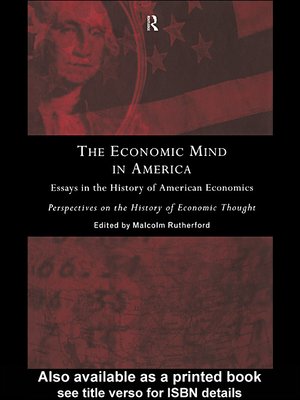The Economic Mind in America
ebook ∣ Essays in the History of American Economics · Perspectives on the History of Economic Thought
By Malcolm Rutherford

Sign up to save your library
With an OverDrive account, you can save your favorite libraries for at-a-glance information about availability. Find out more about OverDrive accounts.
Find this title in Libby, the library reading app by OverDrive.



Search for a digital library with this title
Title found at these libraries:
| Library Name | Distance |
|---|---|
| Loading... |
In the history of economic thought, American economics is an area which has received insufficient attention. This volume demonstrates the variety and creativity of American economics and the links between American economic thought and its particular non-European context. The book consists of selected papers from the 1996 History of Economics Society conference.
The opening section examines the concept of 'American' economic thought from a variety of perspectives. The following sections provide a critical reassessment of pioneering American policy analysts such as Irving Fisher, Wesley Mitchell, Harold Moulton and Leo Paslovsky, as well as the theoretical contributions of Herbert Davenport and Frank Knight. The fourth section contains a detailed account of Thorstein Veblen's institutional economics and an exploration of the influence of Canadian and European economic thought. The unusual and original contributions of C. S. Peirce, Alvin Johnson and science fiction author Robert A. Heinlein are also analysed. The final section details American economists' interests in international issues from 1886-1995.
The opening section examines the concept of 'American' economic thought from a variety of perspectives. The following sections provide a critical reassessment of pioneering American policy analysts such as Irving Fisher, Wesley Mitchell, Harold Moulton and Leo Paslovsky, as well as the theoretical contributions of Herbert Davenport and Frank Knight. The fourth section contains a detailed account of Thorstein Veblen's institutional economics and an exploration of the influence of Canadian and European economic thought. The unusual and original contributions of C. S. Peirce, Alvin Johnson and science fiction author Robert A. Heinlein are also analysed. The final section details American economists' interests in international issues from 1886-1995.







